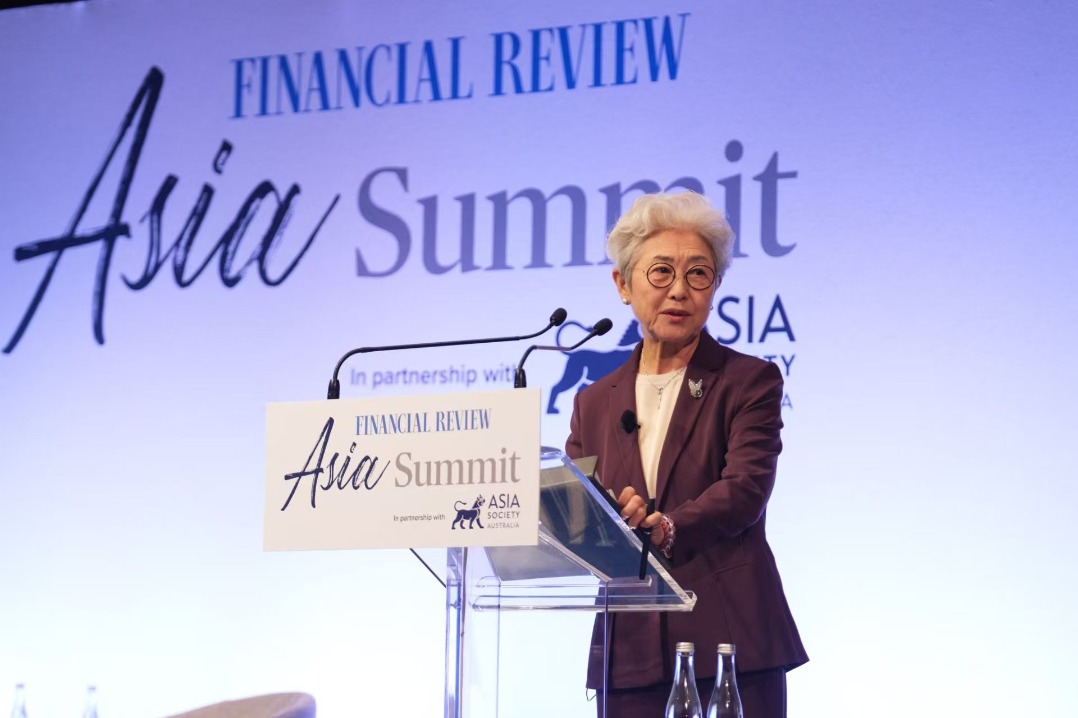Pseudo-multilateralism a losing bet
US' minilateralism in the Middle East is exclusive and only intended to serve its hegemonic interests


Editor's note: The world has undergone many changes and shocks in recent years. Enhanced dialogue between scholars from China and overseas is needed to build mutual understanding on many problems the world faces. For this purpose, the China Watch Institute of China Daily and the National Institute for Global Strategy, Chinese Academy of Social Sciences, jointly present this special column: The Global Strategy Dialogue, in which experts from China and abroad will offer insightful views, analysis and fresh perspectives on long-term strategic issues of global importance.
US' minilateralism in the Middle East is exclusive and only intended to serve its hegemonic interests
Minilateral mechanisms, which involve multiple actors, are flexible, informal and issue-oriented. A prevalent approach to international cooperation, minilateralism can be both inclusive and exclusive. In recent years, the United States has vigorously promoted exclusive minilateralism in the "Indo-Pacific" and Middle East regions to serve its strategy of great power competition.
In the Middle East, the US has been establishing and expanding minilateral mechanisms such as the I2U2 group between the US, Israel, the United Arab Emirates, and India, as well as the Negev Forum, which includes the US, Israel, the UAE, Bahrain, Morocco and Egypt. For the US, these minilateral mechanisms consist of its traditional regional allies, pay attention to both economic and security issues and bear the distinctive characteristics of the Cold War mentality, camp confrontation and bloc cooperation.
Once relying on bilateral allies and unilateralism in the Middle East, the US now increasingly leans on minilateral mechanisms to optimize its engagement in regional affairs and demonstrate its leadership and strategic commitment. Through regional allies and partnerships, the US aims to reduce its strategic investment and costs to counter the influence of Iran, Russia and China, ultimately maintaining its regional hegemony. This reflects both the decline of the US' absolute power in the Middle East and reluctance to accept the waning of its hegemonic status in the region.
While the overall security situation in the Middle East has eased and countries in the region are actively seeking reconciliation, the minilateral mechanisms promoted by the US have exacerbated security dilemmas and arms races in the region. Particularly, there have been continuous tensions and crises between the US-Israel camp and the Iran camp. In March 2023, the US Central Command launched an air raid against facilities in eastern Syria reportedly associated with the Iranian Islamic Revolutionary Guard Corps, citing the death of several Americans in a drone attack.
The exclusive minilateral mechanisms are not conducive to inclusive cooperation in the Middle East. The US seeks to use the I2U2 group to contain China's economic influence and shape a regional economic cooperation model to compete with China.
In a keynote address at the Washington Institute for Near East Policy in May this year, US National Security Advisor Jake Sullivan stated that "in a world of great power competition", strengthening partnerships with the Middle East could "help us with diversified and resilient supply chains so that we are not dependent on any other country", revealing the US' intention to create supply chains less dependent on China. Such acts that disrupt market order do not serve the interests of regional countries and are not conducive to economic cooperation.
The development of minilateral mechanisms in the Middle East is unlikely to go entirely as the US wishes. First, the decline of US power and hegemony in the Middle East makes it difficult for the US to provide sufficient resources for the minilateral mechanisms. As the US has to shift more costs and responsibilities to its allies, it will not be able to shape the minilateral mechanisms as envisioned.
Second, as Middle East countries enhance their strategic autonomy, members of the minilateral mechanisms are practicing diversified and balanced diplomacy, rather than blindly following the US against China or being tied to US actions that may provoke Iran. Anwar Gargash, diplomatic advisor to the president of the UAE, made this clear, saying that "the UAE has no interest in choosing sides between great powers".
Third, as informal institutions, minilateral mechanisms are vulnerable to the impact of unforeseen domestic and international events. The second Negev Summit was originally scheduled to be held in Morocco in March 2023, but it has been postponed multiple times due to intensified violence between Israel and Palestine.
Under international, regional and domestic influences in recent years, the Middle East has arrived at a historical turning point. Development has been prioritized in the strategic choice of Middle East countries, which are now strategically autonomous and seeking reconciliation. The exclusive minilateral mechanisms, which run counter to the historical trend of peace, development, and cooperation, can barely help the US contain rivals and maintain its hegemony.
China, on the other hand, has enhanced political communication and strategic mutual trust with Middle East countries, strengthened its strategic alignment and economic cooperation, deepened security cooperation and jointly solved regional issues. China-Middle East relations have ushered in a new stage, with China increasingly contributing to peace and development in the region.
The world needs real multilateralism, and the Middle East needs real and equal multilateral cooperation. China does not oppose minilateralism, but global governance should adhere to real multilateralism and reject exclusive blocs and small circles targeting specific countries.
The US' promotion of exclusive minilateralism in the Middle East is pseudo-multilateralism that serves only its hegemonic interests. It is not aligned with the interests of the people in the Middle East, nor does it benefit the region's peace and development.
In the new historical context, China's Global Development Initiative, Global Security Initiative and Global Civilization Initiative provide a foothold for cooperation with Middle East countries. Both sides should work together to practice global governance based on the principles of extensive consultation, joint contribution and shared benefits, so as to make global governance more just and reasonable and promote peace and development in the region and the world.
The author is deputy director of the Center for Middle East Development and Governance at the Institute of West-Asian and African Studies at the Chinese Academy of Social Sciences. The author contributed this article to China Watch, a think tank powered by China Daily. The views do not necessarily reflect those of China Daily.
Contact the editor at editor@chinawatch.cn.


































